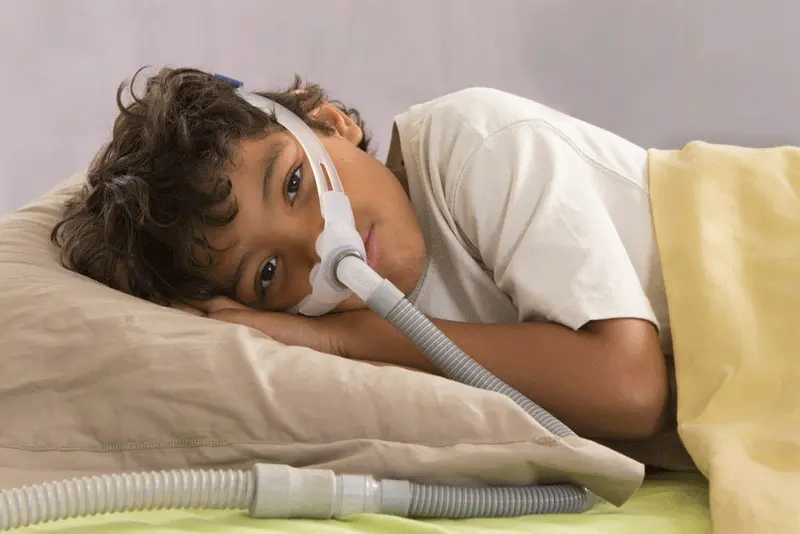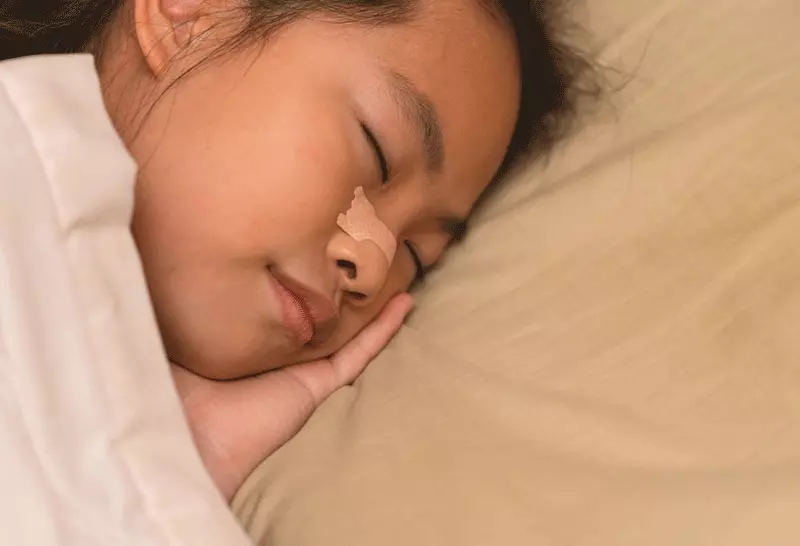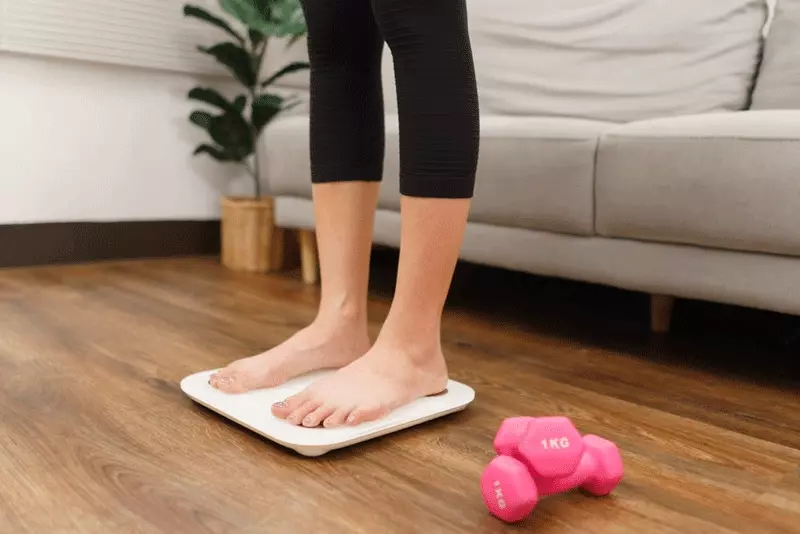Do Snoring Exercises Work? An Insight into Non-Invasive Solutions
Jul 26th 2023

Snoring is common when you can't move air freely through your nose and throat during sleep. This makes the surrounding tissues vibrate, which produces the familiar snoring sound. It can occur in all people at any age, but it tends to be more frequent in men and people who are overweight. Explore the effectiveness of snoring exercises as a non-invasive solution to sleep disturbances.
Why Do People Snore:?

Snoring typically occurs because of airflow obstruction in the throat and nasal passages. Factors like the anatomy of your mouth and sinuses, alcohol consumption, allergies, a cold, and body weight can all contribute to snoring.
Risks Associated with Snoring
Snoring is not only a nuisance but can also pose several health risks. It can disrupt the quality of your sleep, leading to daytime fatigue, irritability, and increased health problems. Long-term snoring can lead to serious conditions like sleep apnea and heart disease.
The Science Behind Snoring Exercises
Snoring exercises aim to strengthen the muscles in the upper respiratory tract, thus reducing the likelihood of their collapse during sleep, which can cause snoring. These exercises typically involve the tongue, throat, and facial muscles.
How Snoring Exercises Can Help to Reduce Snoring

Just as you can exercise to strengthen your arms and legs, you can do exercises to improve your mouth and throat muscles. By strengthening these muscles, you can reduce the chances of them becoming too relaxed and blocking your airways during sleep, thus reducing snoring.
Types of Exercises
Exercises typically focus on:
- Tongue (pushing it against the roof of the mouth)
- Jaw (open and close movements)
- Throat (pronouncing certain vowel sounds or curling the tongue in specific ways)
Each type targets different muscle groups that can contribute to snoring.
Do Snoring Exercises Work?
Various studies suggest that regular snoring exercises can help reduce snoring. A study published in Chest (an internationally renowned journal) showed a significant reduction in snoring in participants who carried out throat exercises over three months.
Personal Testimonials and Case Studies:
There are numerous accounts from individuals who have seen significant improvements in their snoring patterns after engaging in regular snoring exercises. Their experiences add weight to the scientific findings, showcasing the potential effectiveness of these exercises.
The Effectiveness and Time Frame for Seeing Results:
As with most physical conditioning, the effectiveness varies between individuals and depends on consistency and perseverance. It's important to understand that while some may see improvements within weeks, others may require several months.
Detailed Guides to Snoring Exercises:
Various online resources provide detailed instructions for different exercises. The Tongue Slide, for example, involves sliding your tongue along the roof of your mouth. At the same time, the Jaw Workout involves repeatedly opening and closing your jaw while ensuring your mouth does not extend too wide.
Recommended Frequency and Intensity for These Exercises:
Experts generally recommend performing these exercises for 10-30 minutes daily. It's important to start slow, then gradually increase the intensity and duration of the exercises as your muscles strengthen.
Potential Difficulties and How to Overcome Them:
Some might need help to incorporate these exercises into their daily routine. A good strategy is to tie them to a daily habit, such as exercising while watching TV or during commercial breaks.
Alternative Non-Invasive Solutions for Snoring

Aside from exercises, other non-invasive methods have been proven effective in reducing snoring. These include using specially designed pillows, mouthpieces that reposition the lower jaw, nasal strips to open up nasal passages, and positional therapy that encourages sleepers to alter their sleeping positions.
Comparing the Effectiveness of These Methods with Snoring Exercises:
While the methods mentioned above can be effective, they often treat the symptoms rather than the cause of snoring. On the other hand, snoring exercises are a more holistic approach that aims to strengthen the underlying muscles causing snoring.
Possible Side Effects and Contraindications of These Methods
While generally safe, these methods may have some side effects. Mouthpieces, for instance, can cause excess salivation or dry mouth, while nasal strips may cause skin irritation.
Lifestyle Changes That Help Reduce Snoring:
The Importance of Maintaining a Healthy Weight:

Being overweight by just a few kilograms can lead to snoring. Extra fatty tissue in the neck and throat can narrow your airways, making it harder for you to breathe and leading to snoring.
The Effects of Smoking and Alcohol on Snoring:
Smoking irritates your throat and nasal passages leading to inflammation and, ultimately, snoring. Alcohol, on the other hand, relaxes your throat muscles, increasing the likelihood of snoring.
Sleep Hygiene and Its Relation to Snoring:

Good sleep hygiene involves having a consistent sleep schedule and creating a comfortable and conducive sleep environment. A proper sleep schedule helps regulate your body's clock and can greatly improve the quality of your sleep, thereby reducing the chances of snoring.
When to Seek Professional Help:
The Limitations of Snoring Exercises and Non-Invasive Methods: While these methods can be effective, they only work for some. Particularly for those with more severe cases of snoring or sleep apnea, professional help may be necessary.
Warning Signs of More Serious Conditions Like Sleep Apnea:
If you experience symptoms such as excessive daytime sleepiness, morning headaches, waking up in the night choking or gasping, or your partner notices you regularly stop breathing during sleep, these may be signs of sleep apnea. It's important to seek medical help in such cases.
The Role of Medical Professionals in Diagnosing and Treating Chronic Snoring:
Medical professionals can provide a more accurate diagnosis of chronic snoring and guide you toward the best treatment options. This might involve using a CPAP machine, getting an oral appliance, or sometimes undergoing surgery.
FAQs
What kind of exercises can help reduce snoring?
Exercises that strengthen the muscles of the mouth, throat, and tongue can help reduce snoring. These include tongue slides, vocal exercises, jaw exercises, and soft palate exercises.
How long does it take for snoring exercises to work?
The effect of snoring exercises varies from person to person. Some may notice improvements within a few weeks, while others may need several months to experience noticeable changes.
Can snoring exercises cure sleep apnea?
While snoring exercises can help reduce the symptoms of mild to moderate sleep apnea, they are not a cure. Sleep apnea is a serious medical condition that often requires more advanced treatments.
Are snoring exercises a replacement for other snoring treatments?
Snoring exercises can complement other snoring treatments but should not replace professional medical advice or intervention, especially in severe cases.
How can I make snoring exercises a part of my daily routine?
Consider doing snoring exercises at the same time each day, such as before bedtime, so they become a part of your daily routine. It might also be helpful to set reminders or alarms to prompt you.
